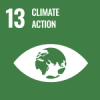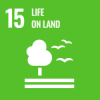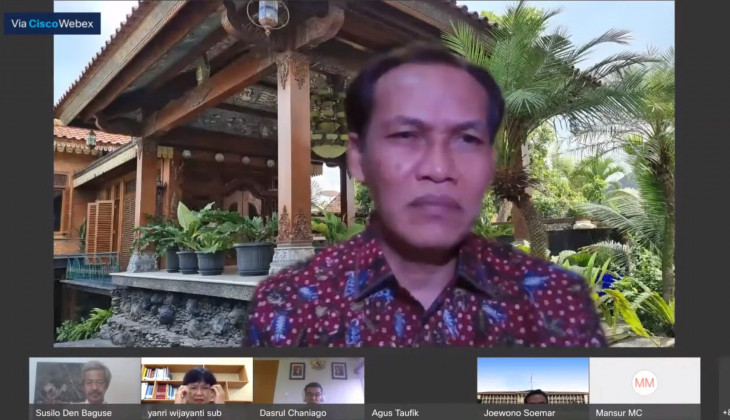Cities in the world are currently suffered the same problems in the dynamics of urbanization and mobility needs. This demand has an impact on high energy consumption for vehicles, most of which are still fossil-based.
“What is going to happen when there is a need for fossil-based energy consumption is the appearance of the impact on environmental conditions, such as air pollution,” said Joewono Soemardjito, a researcher of Center for Transportation and Logistics (PUSTRAL) UGM, in a seminar entitled “Problems of Air Pollution in Cities” held by PUSTRAL UGM online on Tuesday (29/9).
He explained that the rate of motorization in Indonesia from 1950 to 2017 underwent more than ten percent every year. Motorbikes are the most dominant with 90 percent estimation of the total motorized vehicles and have experienced the sharpest growth after 2000.
The increase in energy consumption is also directly proportional to the rise in emissions. The 2016 data showed that the national transportation sector’s CO2 emissions reached 137.94 million tons. By 2050, global CO2 from motorized vehicles is foretold to increase three times than in 2010.
“The demand for fuel continues to increase, especially in the transportation sector. Therefore, if we don’t control the demand, it will get worse,” Joewono said.
To meet the target of commitment to reducing greenhouse gases in the transportation sector, BAPPENAS in 2010 has formulated three policy options. These options cover reducing the number or distance of trips, switching to environmentally friendly modes of transportation, and innovating fuel-efficient vehicle technologies.
According to Joewono, there must be awareness and commitment from many parties to implement this option and positively change Indonesia’s environmental quality.
“There must be an awareness of change which is supported by all stakeholders to collectively maintain the engagement to better air quality in the future,” he said.
On the same occasion, the Head of PUSTRAL, also the Chairman of the Indonesian Transportation Society, Prof. Dr. Ir. Agus Taufik Mulyono, S.T., M.T., IPU, ASEAN Eng., discussed urbanization as one of the world’s influential megatrends.
He also explained that increased motorization was one of the ranges of urban problems, public transportation deterioration, and the inaccuracy of mass transportation type solutions.
Meantime, in the Yogyakarta city itself, according to Very Trijatmiko, Head of the Environmental Capacity Development Division of the Yogyakarta Environment Agency, increased activity on weekends and during long holiday periods has put environmental quality under relatively high pressure.
The problems in the city of Yogyakarta include the increasing volume of waste from the community and the incommutable roads. At the same time, the number of vehicles that keep increasing will result in delays and congestion that can produce air pollution.
“There are many efforts towards being environmentally friendly by reducing plastic, but there has not been a meaningful reduction in the volume of waste. Besides, when buses from various regions enter Jogja on weekends, these will also become big contributors to air pollution,” he added.
To control urban air pollution, according to Very, there are some steps taken. They include advancing and increasing urban greening, campaigning to use lead-free friendly fuels, and the movement to preserve and plant trees.
Source: https://ugm.ac.id/id/berita/20143-tren-urbanisasi-dan-motorisasi-penyebab-penurunan-kualitas-udara



